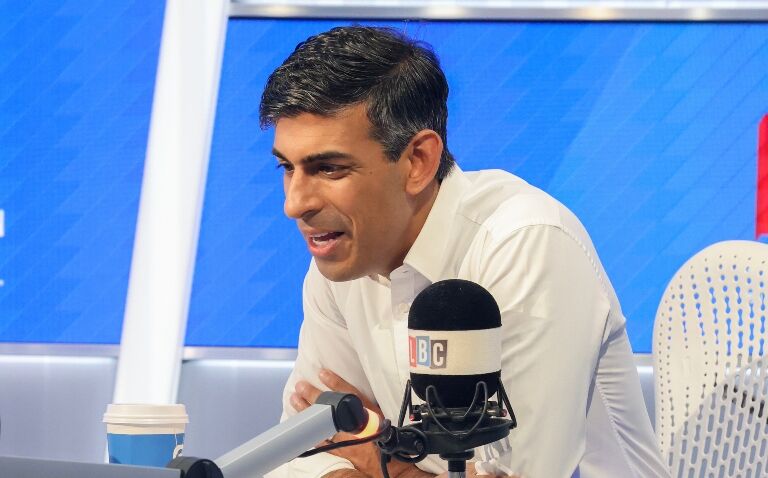The UK Prime Minister has blamed striking doctors for long NHS waiting lists, saying that the industrial action is the reason patients have to wait for appointments.
Speaking on the LBC radio station on 2 August, Rishi Sunak said that despite the Government’s offer of a 6% pay rise, ‘we still have groups of people’ who are striking and ‘that is the reason waiting lists are going up’.
After the pay offer was announced last month, Mr Sunak had appealed ‘in particular’ to ‘doctors and consultants’, urging them to ‘do the right thing, and know when to say yes’.
The BMA rejected the offer despite Mr Sunak’s warning that it was ‘final’ and ‘no amount of strikes’ will change the Government’s decision, with both junior doctors and consultants announcing new strike dates.
Mr Sunak said: ‘If you look at what happened, we were actually making progress – we eliminated the number of two year waiters, people waiting a very long time, we practically eliminated the number of people waiting one and a half years.
‘And we were making progress on bringing the overall numbers down – what happened? We had industrial action and we got strikes.’
He said that he was ‘delighted that the nurses and a million other NHS workers accepted the Government’s pay offer’ and they are working ‘really hard’ to deliver for patients.
He added: ‘But unfortunately we still have groups of people who are not doing that and they are striking – and that is the reason waiting lists are going up, it’s as simple as that.’
The latest NHS England figures for May 2023, analysed by the BMA, show:
- around 7.47 million people are waiting for treatment, a slight increase on the previous month;
- nearly 3.03 million of these patients are waiting over 18 weeks;
- around 385,000 of these patients are waiting over a year for treatment – which is around 307 times as many as in May 2019, before the pandemic began.
Responding to the Prime Minister’s comments, shadow health secretary Wes Streeting said on social media: ‘The Tories have run down the NHS over more than a decade and left record numbers on waiting lists.
‘Now Sunak has the audacity to blame doctors and nurses for rising waiting lists. They’re a convenient scapegoat for his failures. He hasn’t lifted a finger to end the NHS strikes.’
Last week, the BMA junior doctors committee announced the next round of monthly strike action with a four-day walkout taking place between 7am on Friday 11 August and 7am on Tuesday 15 August.
Hospital consultants in England went on strike in July, with the next walkout planned for 24 and 25 August.
Junior doctor committee co-chairs Dr Robert Laurenson and Dr Vivek Trivedi said: ‘The Prime Minister has told us that talks are over. But it is not for Rishi Sunak to decide that negotiations are over before he has even stepped in the room.
‘This dispute will end only at the negotiating table. If the PM was hoping to demoralise and divide our profession with his actions, he will be disappointed.’
Consultants committee chair Dr Vishal Sharma said: ‘The Government has had seven months to work with us to take our concerns seriously, to listen to us and to find a way to avoid industrial action. Ministers have done absolutely nothing to stop this action taking place.’
Data published by NHS England after the latest junior doctors strikes in July showed that over five days there were 101,977 cancellations of acute inpatient and outpatient appointments and that the cumulative total of acute inpatient and outpatient appointments cancelled in eight months of industrial action now stands at 698,813.
Similar data published after the consultant strikes showed 65,557 rescheduled appointments and procedures over 48 hours.
This article was originally published by our sister publication Pulse.
Image courtesy of 10 Downing Street.










